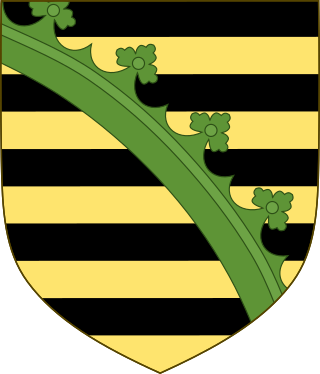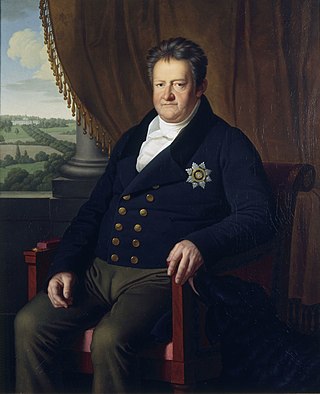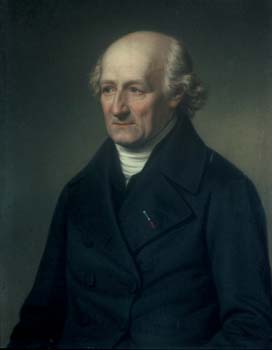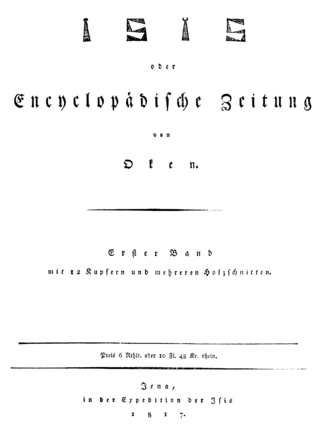
The atheism dispute (German : Atheismusstreit) was an event in German cultural history that lasted between 1798 and 1800 and had an effect on the German philosophy in the late 18th and the early 19th centuries.

The atheism dispute (German : Atheismusstreit) was an event in German cultural history that lasted between 1798 and 1800 and had an effect on the German philosophy in the late 18th and the early 19th centuries.
In 1798, Johann Gottlieb Fichte was accused of atheism after he had published that year his essay Ueber den Grund unsers Glaubens an eine göttliche Weltregierung ("On the Ground of Our Belief in a Divine World-Governance"), which he had written in response to Friedrich Karl Forberg's essay "Development of the Concept of Religion" in his Philosophical Journal. Forberg had claimed that unbelievers could be moral if they act as if an all-seeing and punishing God exists. In his brief essay, Fichte attempted to sketch some of his preliminary ideas on philosophy of religion formulated within his Wissenschaftslehre (doctrine of science). He characterised God as the living moral order of the world. [1]
"On the Ground of Our Belief in a Divine World-Governance" provoked the publication of an anonymous essay that accused both Fichte and Forberg of atheism and called for Fichte's dismissal from his post at the University of Jena, in the Duchy of Saxe-Weimar. In the wake of the dispute, many essays were published supporting and opposing Fichte and a defence by Fichte himself.
Friedrich Heinrich Jacobi eventually published his famous open letter to Fichte, which saw the first use of the word nihilism and in which he equated philosophy in general and Fichte's transcendental philosophy in particular with "nihilism".
Fichte was forced to resign his position at Jena and to flee to Berlin, nominally as a result of statements in which he had threatened to resign if he was subjected to official government reprimand. Fichte, however, wrote later: "It is not my atheism which they are persecuting, it is my democratism. The former only provided the excuse". [2] The documents confirm that: The Weimar minister Christian Gottlob Voigt wrote to his colleague, Johann Wolfgang Goethe that the letter in which Fichte threatened to resign if he were reprimanded by Duke Carl August had given only the "pretense" that the ministers had sought to "get rid of" Fichte. [3] Saxony and Prussia had threatened to prohibit their subjects from enrolling at the University of Jena if Fichte continued teaching there, and Russia and Austria had already introduced such a boycott. The real reason for those governments' continuing unhappiness was his two 1793 anonymously-published books in which he had showed sympathy with the French Revolution, Zurückforderung der Denkfreiheit von den Fürsten Europens, die sie bisher unterdrückten and Beiträge zur Berichtigung der Urteile des Publikums über die Französische Revolution. Goethe later retrieved his letters to Voigt regarding Fichte's dismissal and destroyed them. [4] The University of Jena suffered the loss of many students and some academics after Fichte's dismissal.

Johann Gottlieb Fichte was a German philosopher who became a founding figure of the philosophical movement known as German idealism, which developed from the theoretical and ethical writings of Immanuel Kant. Recently, philosophers and scholars have begun to appreciate Fichte as an important philosopher in his own right due to his original insights into the nature of self-consciousness or self-awareness. Fichte was also the originator of thesis–antithesis–synthesis, an idea that is often erroneously attributed to Hegel. Like Descartes and Kant before him, Fichte was motivated by the problem of subjectivity and consciousness. Fichte also wrote works of political philosophy; he has a reputation as one of the fathers of German nationalism.

Jena is a city in Germany and the second largest city in Thuringia. Together with the nearby cities of Erfurt and Weimar, it forms the central metropolitan area of Thuringia with approximately 500,000 inhabitants, while the city itself has a population of about 110,000. Jena is a centre of education and research. The University of Jena was founded in 1558 and had 18,000 students in 2017 and the Ernst-Abbe-Hochschule Jena serves another 5,000 students. Furthermore, there are many institutes of the leading German research societies.

Friedrich Heinrich Jacobi was a German philosopher, writer and socialite. He is best known for popularizing the concept of nihilism. He promoted the idea that it is the necessary result of Enlightenment thought and the philosophical systems of Baruch Spinoza, Immanuel Kant, Johann Gottlieb Fichte and Friedrich Wilhelm Joseph Schelling.

The House of Wettin was a dynasty which included Saxon kings, prince-electors, dukes, and counts, who once ruled territories in the present-day German federated states of Saxony, Saxony-Anhalt and Thuringia. The dynasty is one of the oldest in Europe, and its origins can be traced back to the town of Wettin, Saxony-Anhalt. The Wettins gradually rose to power within the Holy Roman Empire. Members of the family became the rulers of several medieval states, starting with the Saxon Eastern March in 1030. Other states they gained were Meissen in 1089, Thuringia in 1263, and Saxony in 1423. These areas cover large parts of Central Germany as a cultural area of Germany.

Saxe-Weimar-Eisenach was a German state, created as a duchy in 1809 by the merger of the Ernestine duchies of Saxe-Weimar and Saxe-Eisenach, which had been in personal union since 1741. It was raised to a grand duchy in 1815 by resolution of the Congress of Vienna. In 1903, it officially changed its name to the Grand Duchy of Saxony, but this name was rarely used. The grand duchy came to an end in the German Revolution of 1918–19 with the other monarchies of the German Empire. It was succeeded by the Free State of Saxe-Weimar-Eisenach, which was merged into the new Free State of Thuringia two years later.

Charlotte Albertine Ernestine von Stein, born von Schardt; 25 December 1742, Eisenach – 6 January 1827, Weimar, was a lady-in-waiting at the court in Weimar and a close friend to both Friedrich Schiller and Johann Wolfgang von Goethe, whose work and life were strongly influenced by her.

Karl August, sometimes anglicised as Charles Augustus, was the sovereign Duke of Saxe-Weimar and of Saxe-Eisenach from 1758, Duke of Saxe-Weimar-Eisenach from its creation in 1809, and grand duke from 1815 until his death. He is noted for the intellectual brilliance of his court.

Saxe-Weimar was one of the Saxon duchies held by the Ernestine branch of the Wettin dynasty in present-day Thuringia. The chief town and capital was Weimar. The Weimar branch was the most genealogically senior extant branch of the House of Wettin.

Charles Frederick was the reigning Grand Duke of Saxe-Weimar-Eisenach.

Allstedt is a town in the district of Mansfeld-Südharz, in Saxony-Anhalt, Germany. It is situated approximatively 10 km southeast of Sangerhausen.

Maria Pavlovna was a grand duchess of Russia as the daughter of Paul I, Emperor of all the Russias and Empress Maria Feodorovna and later became the Grand Duchess of Saxe-Weimar-Eisenach by her marriage to Charles Frederick of Saxe-Weimar-Eisenach (1783–1853).

Johann Gustav Stickel was a German theologian, orientalist and numismatist at Jena University.

Charles Alexander was the ruler of Saxe-Weimar-Eisenach as its grand duke from 1853 until his death.
Friedrich Karl Forberg was a German philosopher and classical scholar.

Ernest Augustus I, Duke of Saxe-Weimar, was a duke of Saxe-Weimar and, from 1741, of Saxe-Weimar-Eisenach.

Friedrich Philipp Immanuel Niethammer, later Ritter von Niethammer, was a German theologian, philosopher and Lutheran educational reformer.

Prince Frederick Ferdinand Constantin of Saxe-Weimar-Eisenach was a titular Duke of Saxe-Weimar-Eisenach and a major general in the army of the Electorate of Saxony. He lived during the Age of Enlightenment.
Johann Karl Wilhelm Voigt was a German mineralogist and mining engineer.
Christian Johann Christoph Schreiber was a German theologian, philologist, philosopher, and poet. He was also the Superintendent of the dioceses of Lengsfeld and Dermbach. He was connected in friendship or correspondence to writers and philosophers of his time, and published poetry, sermons, historical and philosophical works.

Isis was an encyclopedic journal that focused on articles on natural science, medicine, technology, economics as well as art and history. It also published important articles on science policy and the organization of science. Edited by Lorenz Oken and published by Friedrich Arnold Brockhaus, Isis was the first interdisciplinary journal in the German-speaking world.